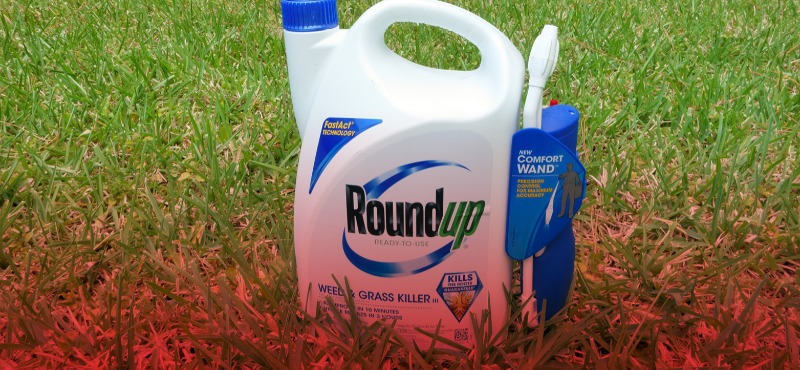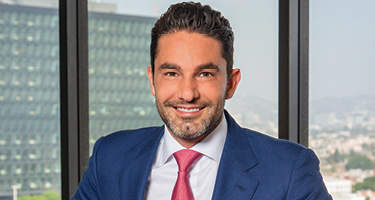Companies Accused of Concealing Health Risks in Product Liability Lawsuits
Despite safety regulations, dangerous products are everywhere. Consumers injured by these products are not staying quiet. Instead, they’re turning to the legal system for help. In recent years, there’s been a significant increase in the number of product liability lawsuits filed against large corporations. Many of these lawsuits accuse companies of concealing health risks in order to increase profits.
Roundup Lawsuits Making Waves in California
Roundup is the most widely used pesticide in the world. It’s also the most controversial. Studies suggest that the weed killer’s active ingredient causes cancer. Monsanto, now Bayer, refuses to acknowledge that this may be true. Instead, the company has gone to great lengths to market its popular weed killer as a safe and friendly chemical.
Monsanto’s reluctance to consider the very real problems associated with glyphosate and Roundup has landed it in hot water. The company is currently named in more than 11,000 Roundup injury lawsuits. Most of the lawsuits have been filed by individuals who were diagnosed with cancer after being exposed to Roundup. The plaintiffs accuse Monsanto of not only failing to warn about known health risks, but intentionally misleading the public about how safe their pesticide really is.
Roundup Weed Killer Linked to Increased Cancer Risk
Several scientific studies have found a link between exposure to glyphosate and cancer. Specifically, individuals who are exposed to glyphosate are much more likely than others to be diagnosed with non-Hodgkins lymphoma (NHL). One study suggested that exposure to glyphosate can increase the risk of cancer by as much as 41 percent.
The greater your exposure, the more likely you’ll be diagnosed with terminal cancer. The risk is greatest in individuals who work with and around the chemical, including farm workers, agriculture workers, landscapers, and groundskeepers. Studies have also shown increased rates of NHL in individuals who live in areas where Roundup is regularly sprayed.
The link between glyphosate and cancer is so strong that the World Health Organization has even classified the chemical as “probably carcinogenic to humans.”
Monsanto Sued for Manipulating Science and Public Opinion
Despite a growing body of research showing a link between Roundup and cancer, Monsanto has remained adamant that its pesticide is safe. However, there is evidence to suggest that Monsanto has known about the dangers associated with Roundup for more than 45 years.
Instead of taking this evidence to consumers and letting them make informed decisions, the company went in a different direction. Internal documents uncovered in early Roundup litigation indicates that Monsanto asserted undue influence over American regulatory agencies, manipulated the outcome of scientific studies, and buried information that could harm sales.
Plaintiffs in Monsanto Roundup lawsuits claim that the company acted maliciously and put profits over health. As a result, they didn’t know about the dangers of being exposed to Roundup. Now thousands of families are struggling with devastating cancer diagnoses. Many plaintiffs are not expected to survive.
Juries Siding With Plaintiffs in Early Roundup Litigation
Two Roundup lawsuits have already gone to trial. A third is scheduled to begin at the end of March. Early results indicate that juries are inclined to believe that (a) glyphosate causes cancer and (b) Monsanto is responsible.
In the very first Roundup trial, a jury awarded a California man $289 million in damages. The award included $250 million in punitive damages. The jury not only believed that exposure to Roundup caused the man’s cancer, but that Monsanto intentionally buried the health risks.
After this devastating loss, Monsanto petitioned to have future trials broken into two phases. First, juries would have to decide whether or not glyphosate was a “substantial factor” in the plaintiff’s cancer diagnosis. Trials could then only proceed to a second phase, considering Monsanto’s liability, if the jury believed Roundup caused cancer.
The company hoped that this dual approach to litigation would yield more positive results. However, it appears as if their efforts have been unsuccessful. The first phase of a second Roundup trial concluded recently. There, the jury unanimously found that glyphosate caused the plaintiff’s cancer. Now the trial will continue to the second phase, where the jury will consider Monsanto’s role and liability.
If Monsanto continues to lose at trial, it may have to reconsider its stance on glyphosate and cancer. At the very least, the company might be forced to settle outstanding lawsuits to preserve what little of its reputation is left.
Dangerous Products Continue to Plague California
Roundup isn’t the only dangerous product to make the rounds in California. Over the past few years, tens of thousands of Californians have been harmed because of defective medical devices and pharmaceutical drugs. This is true, despite the fact that companies have a legal obligation to make sure that the products they develop and sell are safe. Unfortunately, it appears as though companies are more interested in protecting their bottom line than consumer health.
Proton pump inhibitors, a type of medication used to treat heartburn and ulcers, have been problematic in recent years. The controversy surrounding PPIs isn’t much different from that surrounding Roundup. Pharmaceutical companies have been accused of aggressively marketing their best-selling drugs, despite knowing about serious and potentially life-threatening health issues.
Several studies suggest that taking a PPI, such as Prilosec or Prevacid, can increase the risk of developing acute kidney injury and chronic kidney disease. In fact, researchers believe that long-term PPI use is one of the leading causes of “drug-induced” kidney damage in the world.
Unfortunately, the drug companies behind these controversial PPIs haven’t disclosed the risks to consumers. As a result, they’ve deprived patients of the right to make informed decisions about their health. Now PPI drug companies, like Monsanto, are being held accountable in court. A rising number of proton pump inhibitor lawsuits are being filed in courts across the nation.
Get Help If You’ve Been Harmed By a Dangerous Product
You have the right to know about health risks associated with products you’re exposed to or use. If a company fails to warn you about known risks or hazards, you may be entitled to compensation. Do not hesitate to contact an experienced personal injury attorney to find out if you have a legitimate product liability lawsuit on your hands. A successful lawsuit can hold companies accountable for harm you’ve experienced and allow you to recover the money you deserve.
---------------------
Joseph Fantini is a managing partner at Rosen Injury Lawyers, a mass torts injury law firm serving clients nationwide. Mr. Fantini attended Widener University Delaware Law School.
































